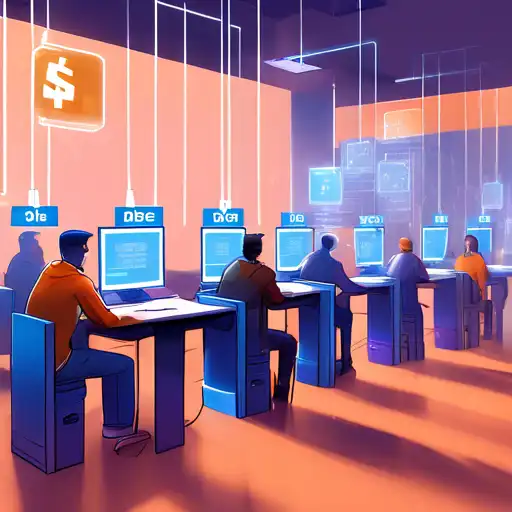Introduction to Blockchain in Voting
In the digital age, the integrity of voting systems is more important than ever. Blockchain technology, known for its security and transparency, is emerging as a revolutionary tool in ensuring secure and tamper-proof voting systems. This article explores the role of blockchain in secure voting, its benefits, and the challenges it faces.
Understanding Blockchain Technology
Blockchain is a decentralized ledger that records transactions across many computers so that the record cannot be altered retroactively without the alteration of all subsequent blocks and the consensus of the network. This makes it an ideal technology for secure voting systems.
The Benefits of Blockchain for Voting
Blockchain technology offers several advantages for voting systems, including:
- Enhanced Security: The decentralized nature of blockchain makes it extremely difficult for hackers to manipulate voting data.
- Transparency: Every vote is recorded on a block and added to a chain, making the process transparent and verifiable.
- Accessibility: Blockchain can enable remote voting, making it easier for people to vote from anywhere in the world.
- Reduced Costs: By eliminating the need for physical polling stations and paper ballots, blockchain can significantly reduce the costs associated with elections.
Challenges and Considerations
Despite its potential, the implementation of blockchain in voting systems faces several challenges:
- Technical Complexity: The complexity of blockchain technology may pose a barrier to its widespread adoption in voting systems.
- Privacy Concerns: Ensuring the anonymity of voters while maintaining transparency is a delicate balance that needs to be addressed.
- Regulatory Hurdles: The legal framework for blockchain-based voting is still in its infancy, requiring clear regulations and standards.
Real-world Applications
Several countries and organizations have begun experimenting with blockchain-based voting systems. For example, Estonia has been a pioneer in using blockchain for secure online voting. Similarly, Sierra Leone tested blockchain technology in its presidential elections, showcasing its potential in emerging democracies.
Conclusion
Blockchain technology holds the promise of transforming voting systems into more secure, transparent, and accessible processes. While challenges remain, the potential benefits make it a compelling solution for the future of elections. As technology evolves and regulatory frameworks develop, blockchain could become the standard for secure voting worldwide.
For more insights into how technology is shaping the future, explore our technology trends section.
